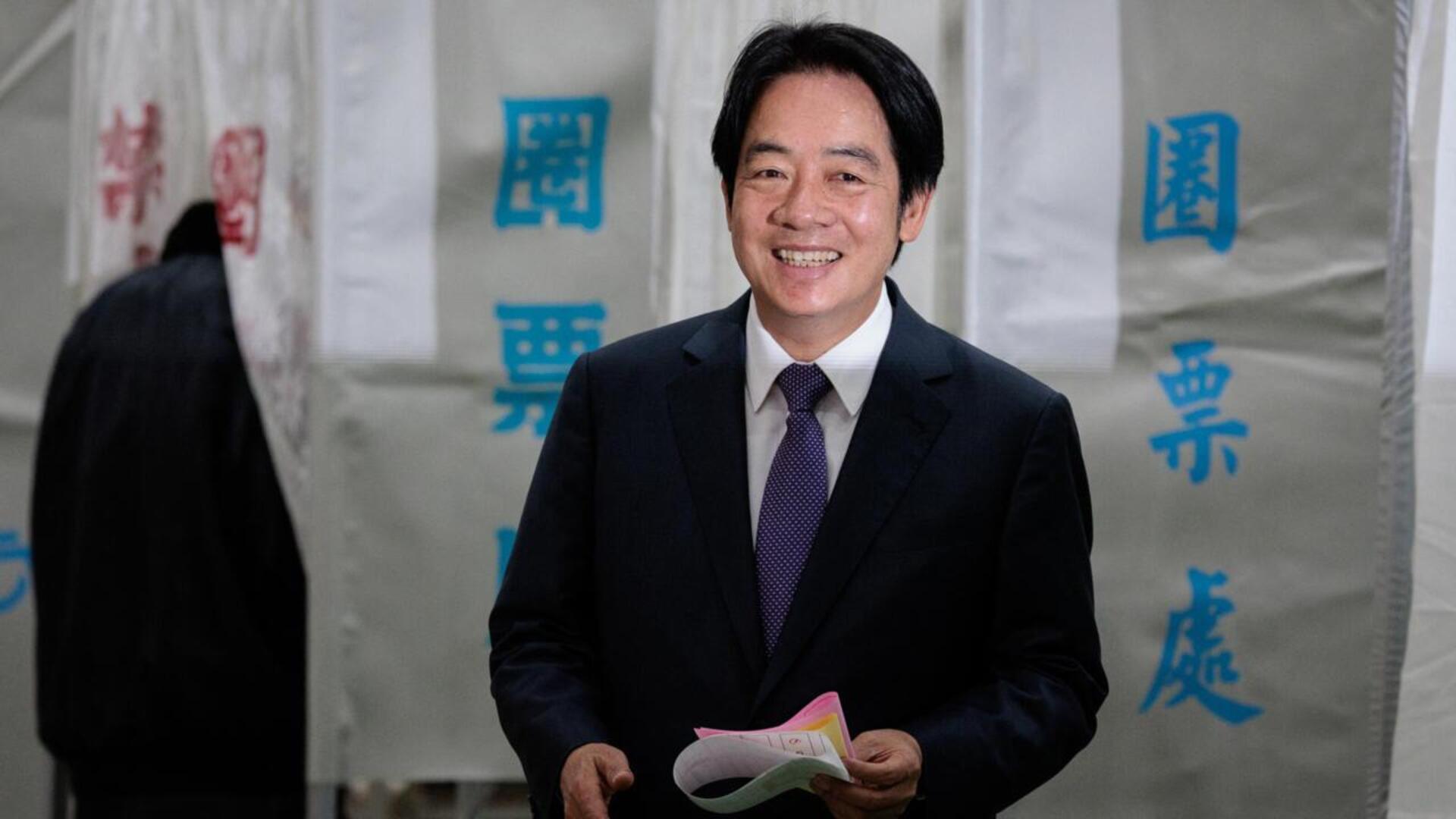
China skeptic William Lai Ching-te elected as Taiwan's president
What's the story
William Lai Ching-te of Taiwan's ruling Democratic Progressive Party (DPP) has been elected the self-ruled island's president. Over 19 million people voted in the three-way contest between Lai, Hou Yu-ih of the Beijing-friendly Kuomintang (KMT), and Ko Wen-je of the newer Taiwan People's Party (TPP). Results showed Lai won 40.9% of the ballots cast, while Hou trailed behind with 33.4% of the vote. Votes have been counted from more than 90% of polling stations across Taiwan.
Context
Why does this story matter?
Taiwan's elections are extremely significant because of the contested political status of the territory. Despite being de facto autonomous since the 1940s, China continues to assert its sovereignty over the island and has not ruled out using force to further its goals. In the run-up to the elections, China called Vice President Lai a dangerous separatist, warning that if he won, he would be a threat to regional peace. It described the elections as a choice between war and peace.
Facts
Increased pressure from Beijing expected
Analysts and diplomats predicted that Beijing would ramp up pressure on Taiwan as Lai prepared to take office after the mid-May inauguration. Days before the election, Beijing labeled Lai a warmonger. Chen Binhua, spokesperson for China's Taiwan Affairs Office, claimed that Lai "will bring Taiwan farther and farther away from peace and prosperity, and closer and closer to war and decay." The United States (US) and China had shown signs of trying to manage the tension ahead of the election.
Insights
Lai's background and stance on independence
Lai, a 64-year-old Harvard graduate with a humble background, was raised by his mother after his father died in a mining accident. Before becoming vice president, he served as mayor of Tainan City and later as Taiwan's premier. Lai has been linked to the Taiwanese independence movement in the past, calling himself a "pragmatic worker for Taiwan independence" in 2017, although he has since toned down that rhetoric.
Tsai
Lai will succeed outgoing Tsai Ing-wen
Lai will succeed outgoing President Tsai Ing-wen on May 20. He joined Tsai's government in 2017 after being appointed premier, and he retained the role until 2019 when he paired with Tsai as she ran for a second term in power. Lai was sworn in as vice president in 2020 after Tsai returned for a second term as the president.
Election
Taiwan's election not just about relations with China
In his victory speech, Lai said, "The elections have told us that people expect an effective government as well as strong checks and balances." He added that he will work with opposition parties to tackle the problems Taiwan faces. Besides the China tensions, domestic issues dominated the election campaign. Though the DPP's Lai won, younger people, in particular, were drawn to the TPP, which vowed to address soaring house prices and increase expenditure on healthcare and rent subsidies.